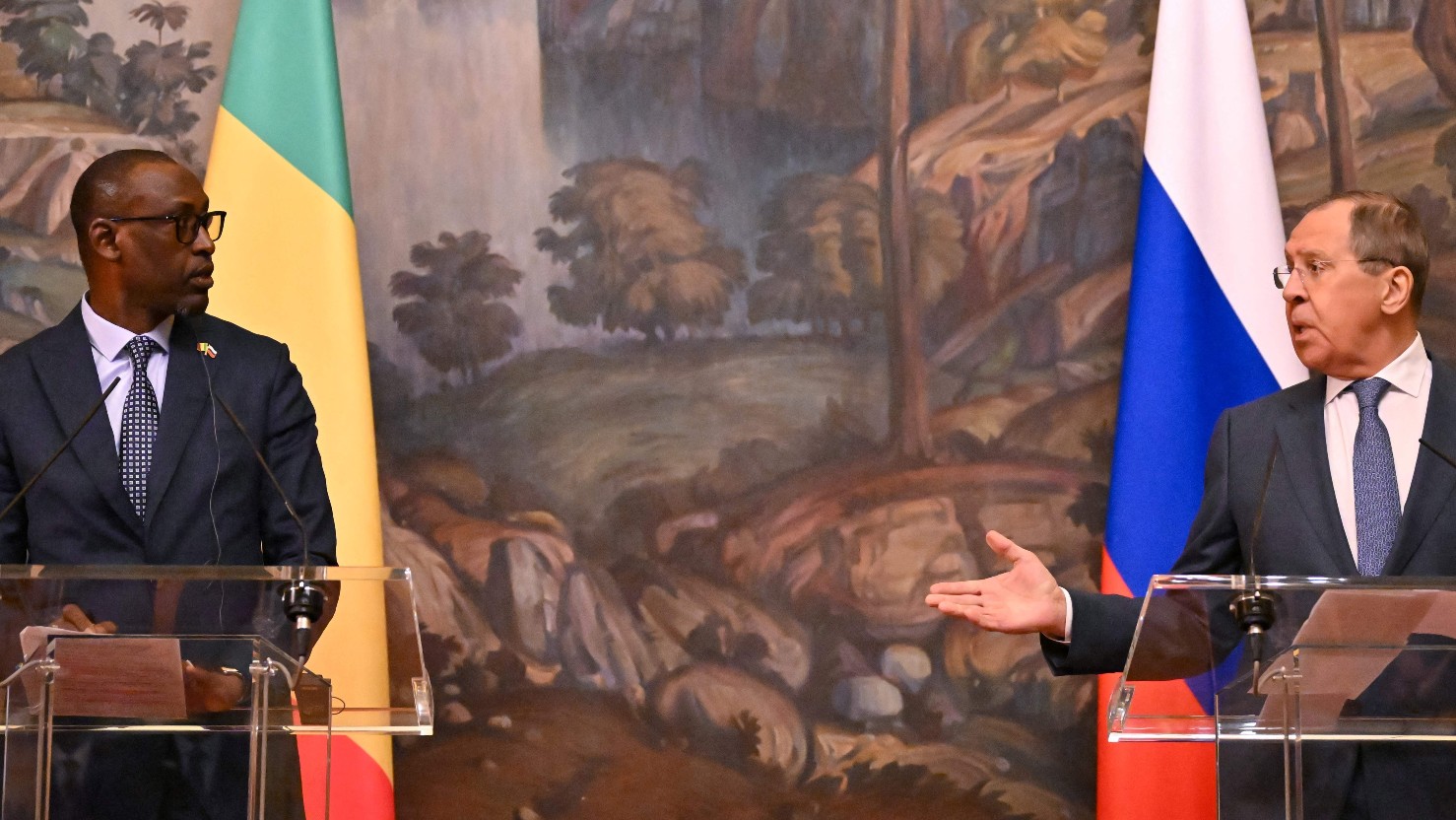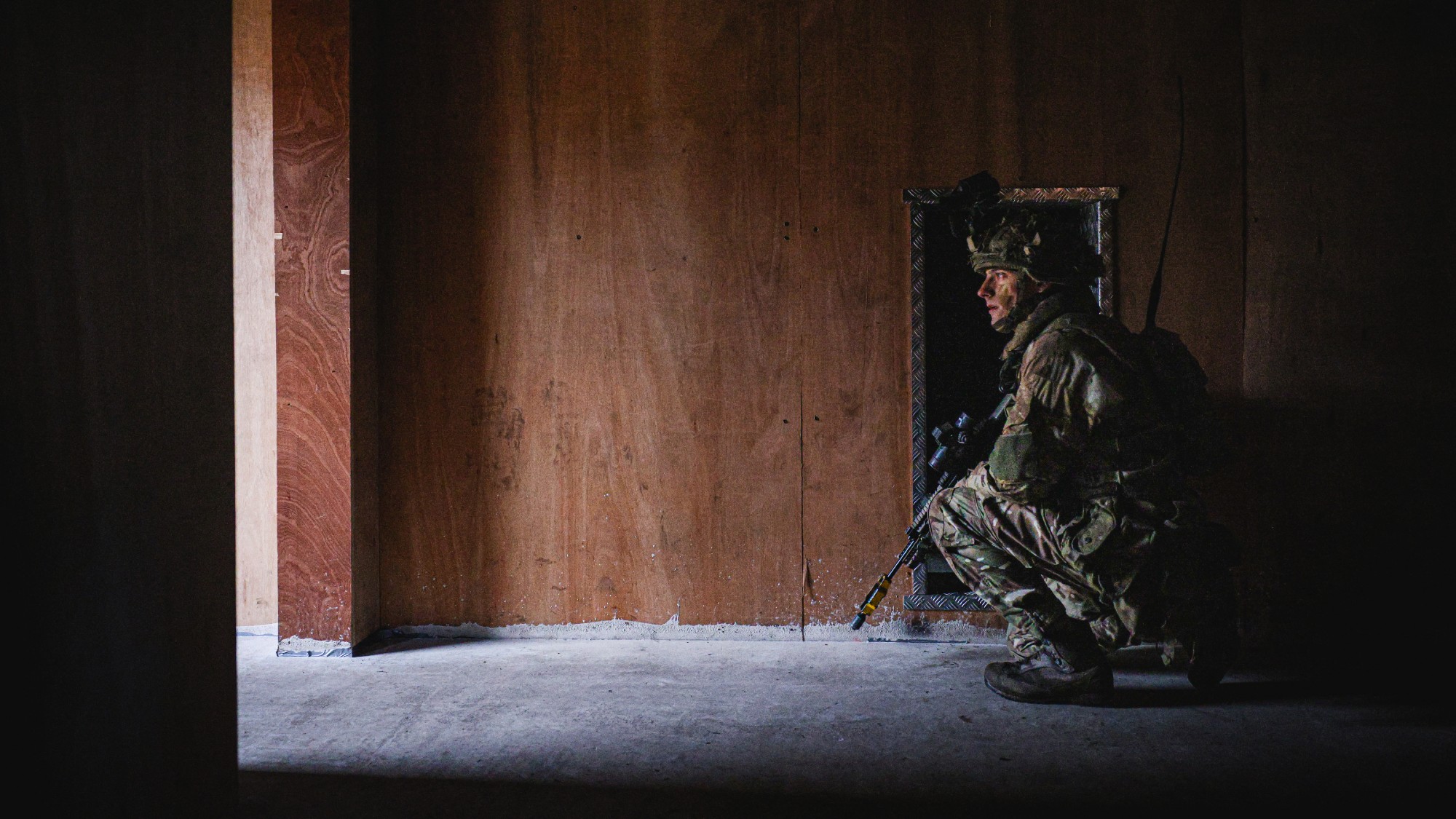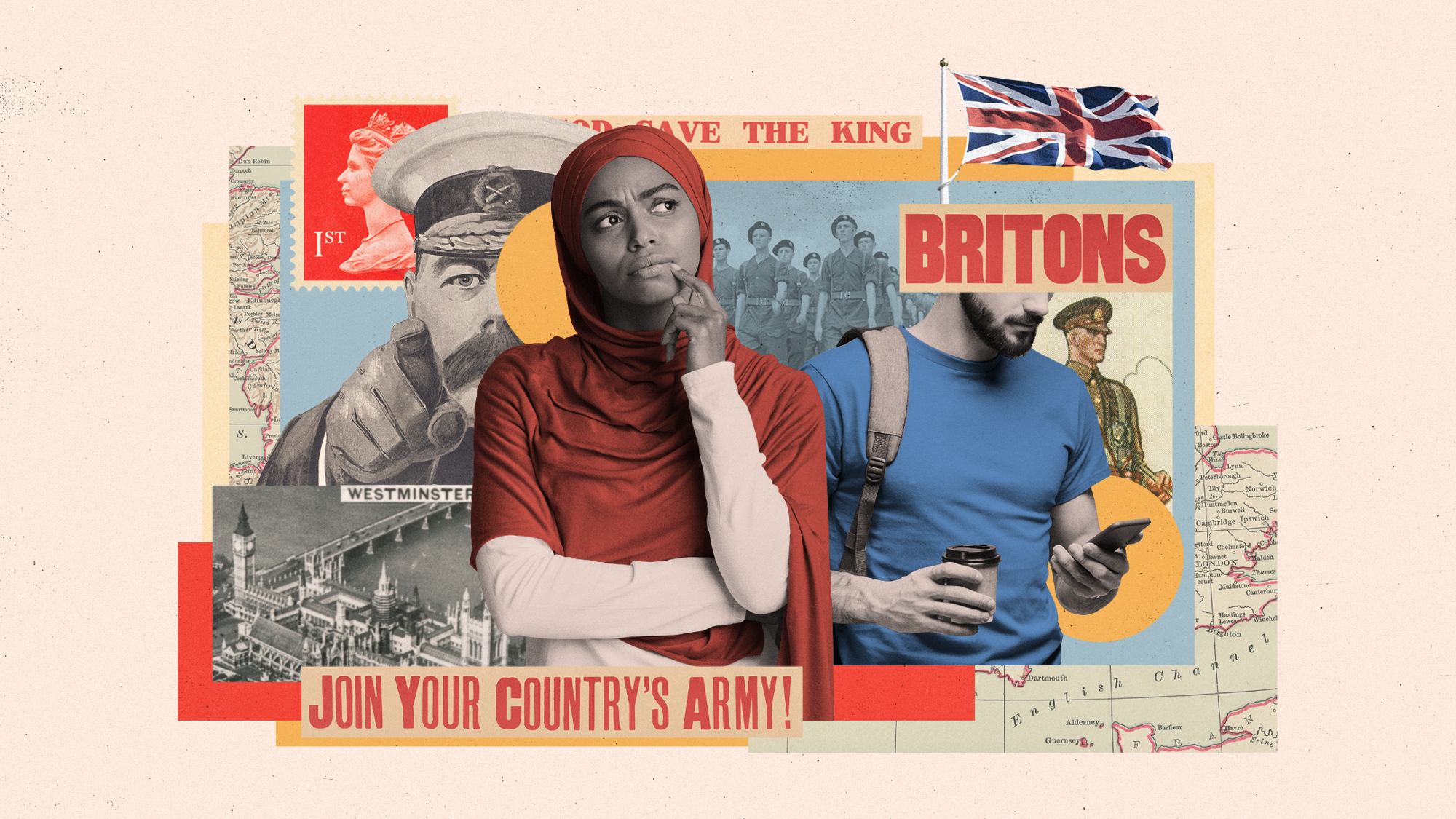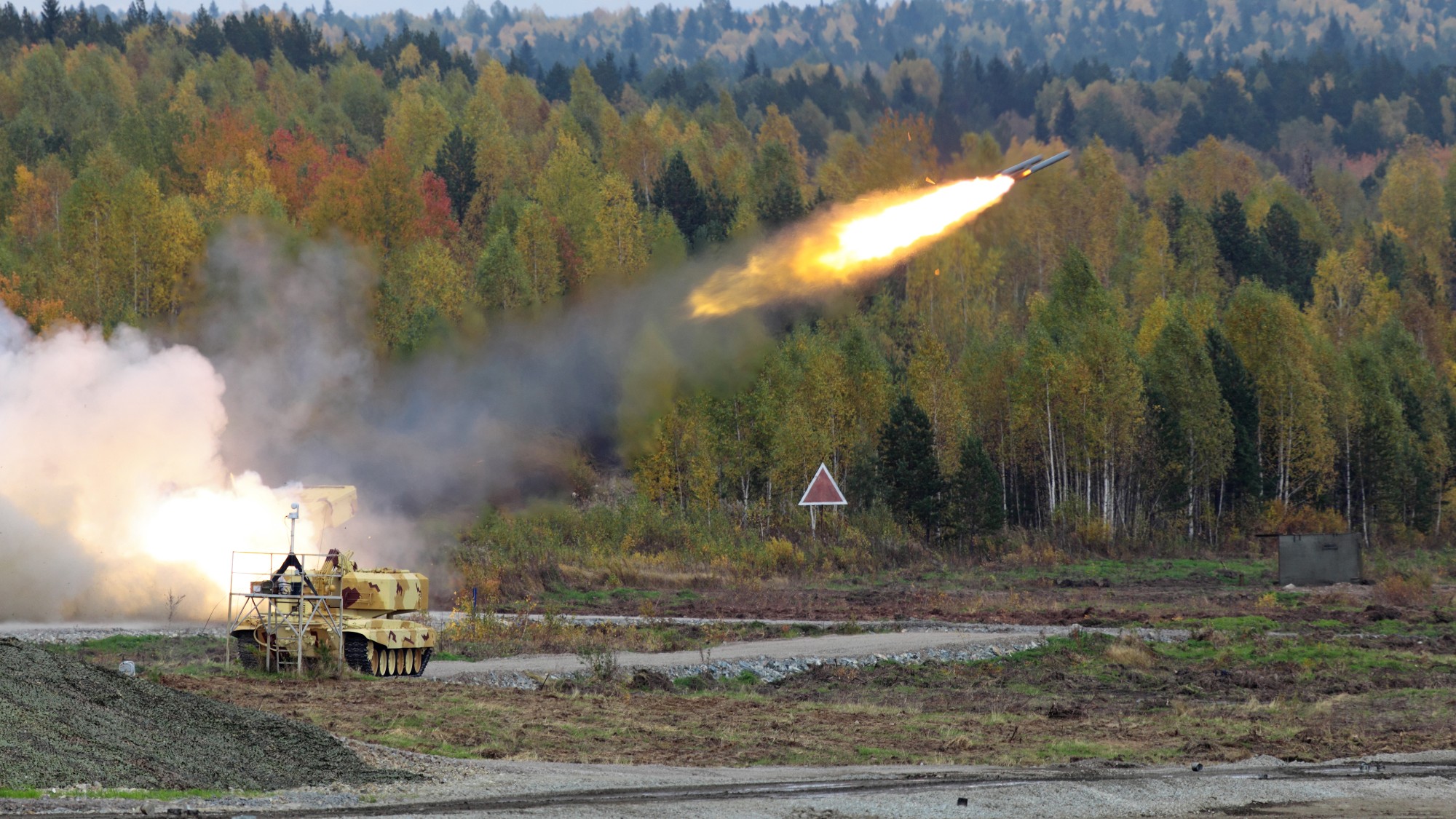How will Wagner turmoil affect peace-keeping in Mali?
Mutiny in Russia and expulsion of UN forces threatens to further destabilise war-torn West African nation

A free daily email with the biggest news stories of the day – and the best features from TheWeek.com
You are now subscribed
Your newsletter sign-up was successful
Russia has sought to reassure the military junta ruling Mali that Wagner Group mercenaries will continue to operate in the war-torn West African nation.
UN peacekeepers have been stationed in Mali since 2013, seeking to contain Islamist insurgents. But Mali’s foreign minister, Abdoulaye Diop, denounced the UN earlier this month over the “failure” of its mission, and called on peacekeeping forces to withdraw “without delay”.
The demand, said Al Jazeera, “followed years of fraying relations between the UN and [Malian capital] Bamako’s military leadership”, which has held power since coups in 2020 and 2021. The fear now is that the country could slide “deeper into chaos if separatist sentiments resurge”.
The Week
Escape your echo chamber. Get the facts behind the news, plus analysis from multiple perspectives.

Sign up for The Week's Free Newsletters
From our morning news briefing to a weekly Good News Newsletter, get the best of The Week delivered directly to your inbox.
From our morning news briefing to a weekly Good News Newsletter, get the best of The Week delivered directly to your inbox.
Wagner revolt uncertainty
This week’s revolt by the Wagner Group in Russia “poses a diplomatic quandary for Mali and Central African Republic (CAR)”, said Reuters.
This is because “forces from the mercenary group have played an increasingly central role” in the countries. Wagner Group operatives have fought militant groups who have taken advantage of the vacuum left by France withdrawing its troops in 2022 after a nine-year operation.
Russia’s foreign minister Sergey Lavrov said the Wagner Group would continue to operate in Mali, and that the apparent mutiny of its forces in Russia over the weekend would not affect relations between the two countries.
Lavrov said that Europe and France had “abandoned” Mali and neighbouring CAR, and so the countries turned to Russia and the Wagner mercenaries to “ensure the security of their leaders”, he is quoted as saying by Euronews.
A free daily email with the biggest news stories of the day – and the best features from TheWeek.com
Wagner is “an instrument of Russian influence” in the mind of the West, said Africa News, advancing Moscow’s interests and allegedly “committing atrocities wherever it is deployed”.
UN involvement
The UN mission was established after a coup in 2012, when a rebellion among the Tuareg people of northern Mali triggered a military coup in Bamako and an Islamist takeover of the north. France, Mali’s former colonial ruler, entered the fray to help combat the subsequent Islamist jihad insurgency.
In June 2015, the Malian government, the coalition of pro-government armed groups from the north of the country, and a rebel alliance signed the Algiers Peace Agreement, mediated by the UN mission, as well as the African Union, the European Union, the US and France.
The peacekeeping mission may have “struggled to contain the violence”, said Al Jazeera, but it has “played a role in placating the separatists, who halted their offensive”.
But the Algiers agreement has been fraying. In 2020, the country fell under military control after a coup against Ibrahim Boubacar Keita, who resigned the presidency and dissolved parliament.
The 2020 coup and another the following year “brought in leaders more hostile to Western forces”, said the i news site, and more willing to “hold up Western troops as a target and scapegoat”.
Although the UN was originally meant to take its 13,000 troops out of Mali on 30 June, talks had been ongoing about renewing its mandate. But in May, thousands of Malians protested in the capital against the mission’s ongoing presence.
Now, it says it sees no way of continuing. “Peacekeeping is based on the principle of consent from the host country,” the head of the mission, El Ghassim Wane, told reporters earlier this month. “Absent that consent, of course, operations are nearly impossible.”
The growing partnership with Moscow
Anti-West sentiment is on the rise in Mali and neighbouring Burkina Faso. This is in part due to France’s history as a colonial ruler, “but also because of [the West’s] failure to deal with security problems” and a “seeming lack of accountability” for the killing of civilians by French troops, said the i news site.
Last year, France and its allies withdrew troops from Mali, while Burkina Faso expelled the French in January this year. That left a power vacuum for Russia to exploit.
During a visit to the West African country last month, his third in six months, Lavrov pledged continued Russian military support. But since Wagner arrived in Mali, civilian deaths have “shot up”, said i news, with a fourfold increase since 2021.
Last year, Wagner mercenaries and Malian troops killed more than 500 Malian villagers, The Associated Press reported in May. It was “the worst single atrocity associated with Kremlin-linked group outside Ukraine”, said The Observer.
Uncertain future
The UN’s withdrawal would be a “fatal blow” to the chances of peace, said Al Jazeera. A coalition of armed groups said the UN exit, “without a credible alternative”, would threaten security in Mali and stability in the region.
There has been “no visible change so far on the ground” to Wagner operations in Mali, tweeted the open-source network All Eyes on Wagner. But according to Politico, “analysts say it’s unlikely the status quo will prevail”.
“In Mali, the authorities are late on payments [for Wagner] because they don’t receive any European aid from Europe,” Nicolas Normand, a former French ambassador to Senegal and Mali, told Politico. “And Wagner is expensive, it’s several million euros.”
Harriet Marsden is a senior staff writer and podcast panellist for The Week, covering world news and writing the weekly Global Digest newsletter. Before joining the site in 2023, she was a freelance journalist for seven years, working for The Guardian, The Times and The Independent among others, and regularly appearing on radio shows. In 2021, she was awarded the “journalist-at-large” fellowship by the Local Trust charity, and spent a year travelling independently to some of England’s most deprived areas to write about community activism. She has a master’s in international journalism from City University, and has also worked in Bolivia, Colombia and Spain.
-
 The EU’s war on fast fashion
The EU’s war on fast fashionIn the Spotlight Bloc launches investigation into Shein over sale of weapons and ‘childlike’ sex dolls, alongside efforts to tax e-commerce giants and combat textile waste
-
 How to Get to Heaven from Belfast: a ‘highly entertaining ride’
How to Get to Heaven from Belfast: a ‘highly entertaining ride’The Week Recommends Mystery-comedy from the creator of Derry Girls should be ‘your new binge-watch’
-
 The 8 best TV shows of the 1960s
The 8 best TV shows of the 1960sThe standout shows of this decade take viewers from outer space to the Wild West
-
 Munich Security Conference: a showdown between Europe and Trump?
Munich Security Conference: a showdown between Europe and Trump?Today’s Big Question Report suggests European leaders believe they can no longer rely on the US for military support – but decoupling is easier said than done
-
 Taiwan eyes Iron Dome-like defence against China
Taiwan eyes Iron Dome-like defence against ChinaUnder the Radar President announces historic increase in defence spending as Chinese aggression towards autonomous island escalates
-
 Is conscription the answer to Europe’s security woes?
Is conscription the answer to Europe’s security woes?Today's Big Question How best to boost troop numbers to deal with Russian threat is ‘prompting fierce and soul-searching debates’
-
 How will the MoD's new cyber command unit work?
How will the MoD's new cyber command unit work?Today's Big Question Defence secretary outlines plans to combat 'intensifying' threat of cyberattacks from hostile states such as Russia
-
 The state of Britain's Armed Forces
The state of Britain's Armed ForcesThe Explainer Geopolitical unrest and the unreliability of the Trump administration have led to a frantic re-evaluation of the UK's military capabilities
-
 Is the 'coalition of the willing' going to work?
Is the 'coalition of the willing' going to work?Today's Big Question PM's proposal for UK/French-led peacekeeping force in Ukraine provokes 'hostility' in Moscow and 'derision' in Washington
-
 Would Gen Z fight for 'racist' Britain?
Would Gen Z fight for 'racist' Britain?Today's Big Question Only 11% of people aged 18-27 say they would fight for UK, survey by The Times reveals, amid low levels of pride and 'declines in confidence in institutions'
-
 'Second only to a nuclear bomb' – the controversial arms Russia is using in Ukraine
'Second only to a nuclear bomb' – the controversial arms Russia is using in UkraineThe Explainer Thermobaric bombs 'capable of vaporising human bodies' have been used against Ukraine